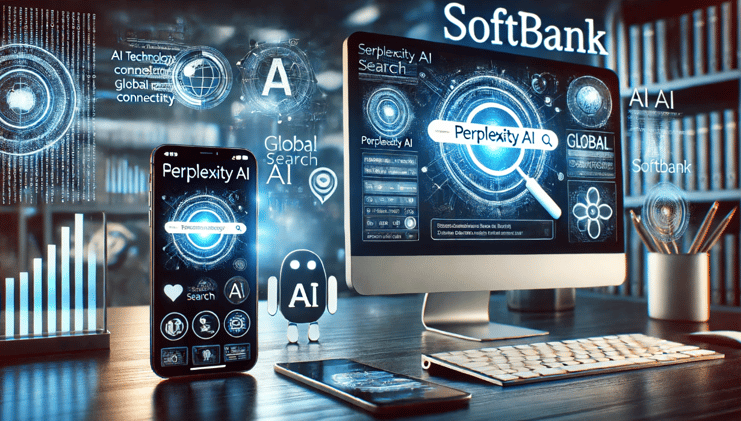Monday’s Major AI Announcements
DeepMind’s Breakthrough in AI Reasoning
- Introduction of GPT-5: In a groundbreaking move, DeepMind recently unveiled its latest iteration of the GPT model, now referred to as GPT-5. This advancement represents a leap in artificial general intelligence (AGI), offering unprecedented capabilities in understanding and generating human-like text.
- Enhanced Contextual Understanding: The updated model demonstrates superior contextual awareness, enabling it to comprehend intricate relationships within vast datasets.
- Improved Generation Accuracy: Significant improvements have been observed in the precision of text generation, with enhanced coherence and reduced grammatical errors.
- Applications in Various Domains: GPT-5 is expected to revolutionize industries such as healthcare, finance, education, and entertainment through its advanced capabilities.
NVIDIA’s Leap in AI Hardware
- ** release of its latest GPU architecture dedicated to AI processing: NVIDIA’s announcement of its next-generation AI-focused GPU marks a pivotal moment in the acceleration of AI innovation.
- A100 Tensor Core Expansion: The update includes enhanced tensor processing units, significantly boosting computational efficiency for machine learning tasks.
- Increased Memory Bandwidth: Improved memory bandwidth ensures faster data transfer rates, enhancing overall performance in AI workloads.
- AI-Powered Framework Integration: The new GPU is compatible with popular AI frameworks like TensorFlow and PyTorch, simplifying implementation for developers.
Google’s Progress on Neural Networks
- Introduction of EfficientNets: Google has made strides toward optimizing neural networks through its release of the EfficientNet family, designed to strike a balance between computational efficiency and model accuracy.
- Progressive Channel Splitting: This technique optimizes resource usage by progressively splitting channels during network depth.
- Dynamic ReScale Functionality: Enhanced performance on edge devices with dynamic scaling capabilities, ensuring efficient deployment across diverse computing environments.
- Energy Efficiency: Significant improvements in energy efficiency, making it suitable for mobile and embedded systems.
Tuesday’s Major AI Announcements
Microsoft’s Advancements in Large Language Models
- Announcement of GPT-4 Enhancements: Microsoft has introduced several key updates to its GPT-based language model, enhancing both functionality and accessibility.
- ** Improved Accessibility**: A simplified interface with enhanced cross-platform support is now available for enthusiasts.
- New Features in Code Completion: Significant improvements have been made to code completion functionality, improving productivity across multiple domains.
- Open Source Collaboration: Microsoft has opened the source code of these advancements under an open-source license, fostering innovation and community-driven development.
IBM’s Quantum Computing Breakthroughs
- Expansion of Quantum Processing Capabilities: IBM continues its leadership in quantum computing with enhancements to its quantum processing units (QPUs).
- Enhanced Error Correction: Improved error correction techniques are now available, boosting the reliability of quantum computations.
- Increased Qubit Count: IBM has expanded the number of qubits in its systems, enabling more complex problem-solving capabilities.
- Industry Partnerships: Collaborations with leading tech companies and research institutions are accelerating real-world applications development.
Tesla’s AI Integration
- Integration of Autopilot with Neural Network Updates: Tesla has integrated enhanced neural networks into its autopilot system, improving the car’s decision-making processes.
- Real-Time Learning: The updated systems enable real-time learning from driving data, enhancing safety and efficiency.
- Enhanced Perception Systems: Improvements in image recognition and obstacle detection have been made to improve situational awareness.
- Cross-Platform Compatibility: Updated software is compatible with various Tesla models, ensuring consistent performance across the fleet.
Wednesday’s Major AI Announcements
Amazon’s Growth of AI Services
- Launch of Deepglue for Content Analysis: Amazon has introduced Deepglue, a new tool that automates and enhances content analysis within its AI services.
- Enhanced Cross-Media Processing: The platform now supports multi-modal processing across images, videos, and text.
- Improved Data Fusion Capabilities: Advanced algorithms enable more accurate data fusion from diverse sources.
- Openness to Third-Party Integration: Deepglue is designed to integrate with third-party systems for broader use cases.
OpenAI’s Progress on the ChatGPT Series
- Announcement of GPT-4 Fine-Tuning: OpenAI has announced plans for fine-tuning GPT-4 models, promising enhanced capabilities in reasoning and common sense.
- Expanded Contextual Awareness: Fine-tuned models are expected to demonstrate better understanding of context across diverse topics.
- Enhanced Generation Speed: Improvements have been made to increase generation speed without compromising accuracy.
- Focus on Specific Domains: The fine-tuning process will concentrate on specific domains, enhancing relevance in those areas.
Meta’s Leap into AI Hardware Development
- Release of a New AI Chip for Workstations: Meta has unveiled its latest AI chip aimed at high-performance computing environments.
- Enhanced Neural Processing Units (NPU): The NPU is optimized for tasks like machine learning and data analysis.
- Improved Energy Efficiency: Specialized designs reduce power consumption while maintaining high performance.
- Integration with Other Meta Products: The chip is compatible with other Meta hardware, enhancing ecosystem integration.
The past week has been a rollercoaster for the AI space, with groundbreaking announcements across various companies. From DeepMind’s GPT-5 to NVIDIA’s enhanced GPUs, the industry continues to evolve rapidly. These developments hold immense potential, promising to transform multiple industries in the coming years.



